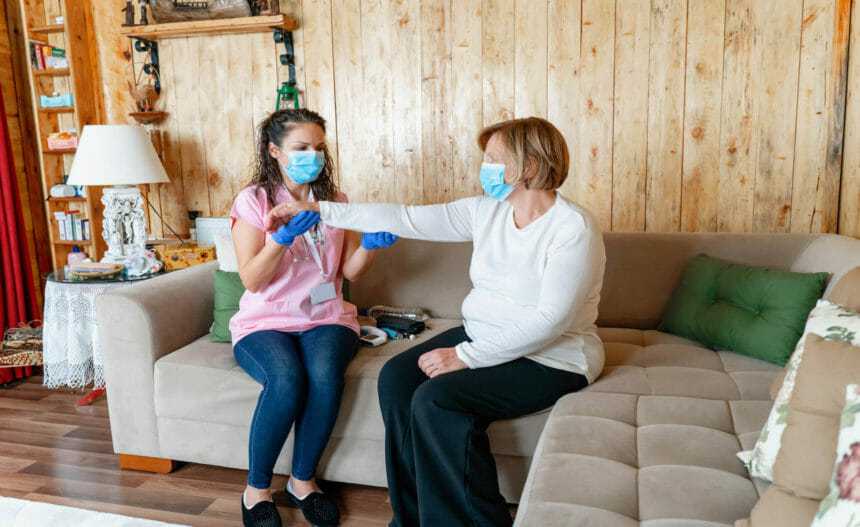
Low salary and lack of job growth are the two leading reasons that home caregivers leave their jobs, according to a new survey by the tech company Medflyt.
Some 6,087 caregivers participated in a survey conducted between May 20 and 28, according to Levi Pavlovsky, COO and founder of Medflyt, who discussed the findings in a webinar on Tuesday. Kathy Febraio, president of the New York State Association of Health Care Providers Inc., which represents the continuum of home care providers, also participated in the webinar.
When asked why caregivers would leave their job, 29.4% said salary and 20.4% said lack of job growth, the survey found. When asked what they would change about their job to make it better, 52.7% said better benefits and salary and 19.2% said options for career growth.
Worsening retention, recruitment issues
The pandemic exacerbated workforce problems, Febraio noted. But there is a unique opportunity now, with the spotlight on the home care workforce and the president’s proposal to invest $400 billion in home- and community-based services, to provide more funds and attention to home care, she said.
Now that the pandemic is waning, “let’s get this workforce back, let’s get them stabilized and make this a strong and vibrant home care industry,” Febraio said.
Pavlovsky and Febraio discussed possible solutions to the home care workforce shortage that may only worsen in the coming years as the population ages. In addition to better pay and career options, the profession needs more training and overall respect, they said.
A whopping 71% of caregivers said they didn’t submit any observations about their patients in the last week, according to the survey, according to Pavlovsky. Some 37% of caregivers said when they do, they typically don’t receive any feedback.
Mentorship pilot program
One way to improve retention is mentorship programs, Febraio said. She talked about a one-year peer-to-peer mentoring program in New York that ended on May 31. Three home care agencies in New York City and three in upstate New York participated. The program partnered experienced caregivers with newly hired ones with the goal of decreasing turnover within the first 90 days of employment. Among the key findings, caregiver turnover rates in the first 90 days of employment showed that nonpilot agencies had a 170% higher caregiver turnover rate in the first 90 days of employment as compared with pilot agencies during the research period.
Such a program implemented around the country would bring “a tremendous amount of value,” Pavlovsky said.
Positive findings
Pavlovsky offered some positive findings from the survey. Among them: 61% of caregivers love their work. The best things about their job are their patients (36.8%), it is open and flexible (26.1%), and learning new things (20%).
To help draw workers into home care, it is important to highlight these positive aspects, Febraio and Pavlovsky said.
“Where else in healthcare can you spend that much time with an individual?” Febraio said.
The mindset needs to change from treating home care workers as menial workers to respecting them as lifesavers, Pavlovsky said.
The headline in newspapers should be “Be a lifesaver; be a caregiver,” Pavlovsky said.




